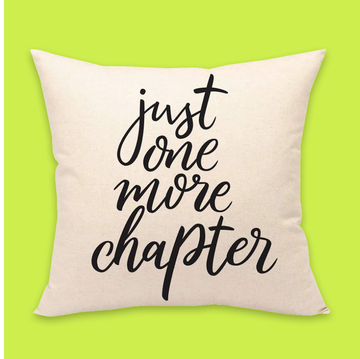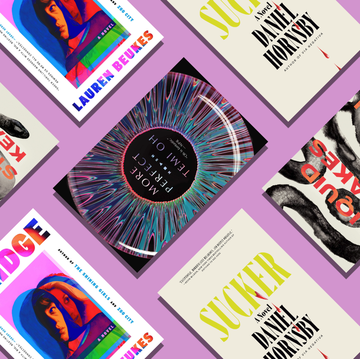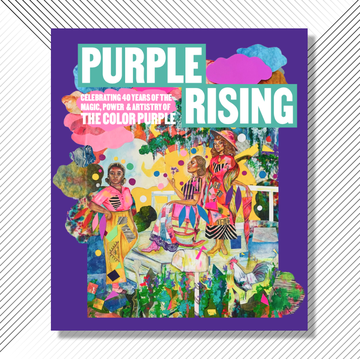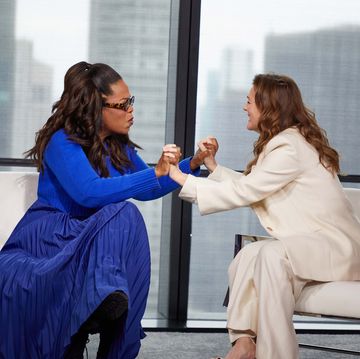Our editors handpick the products that we feature. We may earn commission from the links on this page.
10 Books to Help with Old, Painful Traumas
From one of the most actionable—and tested—treatment models to a series of conversations with Oprah and Dr. Bruce Perry, these nine books offer a path to healing.
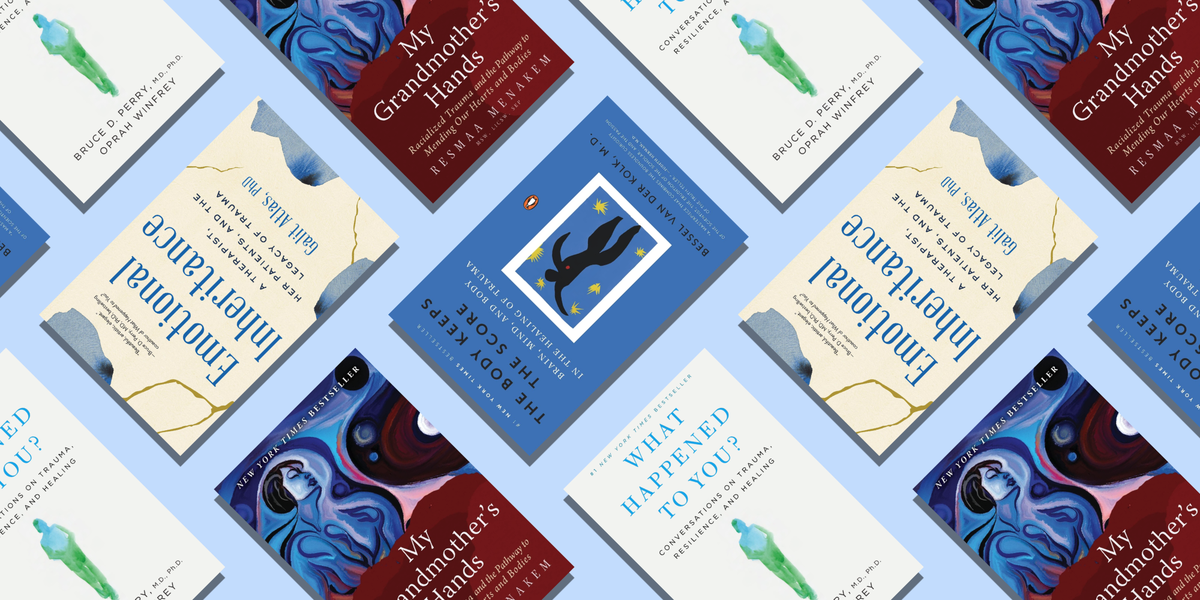
Trauma is a big, cultural buzzword, which suggests that we’re rapidly becoming a more trauma-informed society—that said, even as it’s casually thrown around as a term, it’s a highly nuanced concept. Its etymology is “wound,” and there are many iterations: deep, collective ones, as well as both glancing and insidious individual harms. Below, books for every variation and application.
If You Want to Understand How Trauma Shows Up in the Body: The Myth of Normal, by Gabor Maté, MD
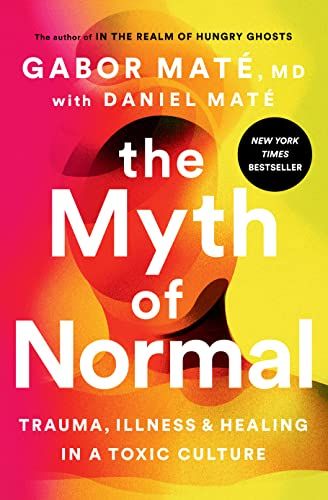
If You Want to Understand How Trauma Shows Up in the Body: The Myth of Normal, by Gabor Maté, MD
There are few doctors who have done more for collective healing than Gabor Maté—or who offer a more nuanced expression of trauma in its manifold forms. While he’s written masterpieces about addiction, autoimmune disease, attachment, and attention disorders, his latest—The Myth of Normal—caught fire, speaking to malaise that many of us can feel but haven’t been able to articulate or contextualize. Much of the book addresses the way trauma manifests in the individual, but the larger thesis is about our toxic culture and how this shows up in our bodies and minds. He also flips trauma on its head, arguing that it’s not necessarily about big events that we might typically recognize as traumatic, like physical abuse. As he writes, “Children, especially highly sensitive children, can be wounded in multiple ways: by bad things happening, yes, but also by good things not happening, such as their emotional needs for attunement not being met, or the experience of not being seen and accepted, even by loving parents. Trauma of this kind does not require overt distress or misfortune of the sort mentioned above and can also lead to the pain of disconnection from the self, occurring as a result of core needs not being satisfied.” Ultimately, this book is a deeply loving masterclass of what it is to be alive, offering hope for those who need to heal but don’t know precisely from what.
If You’re Looking for a DIY Trauma Toolkit: The Transformation\, by James Gordon, MD
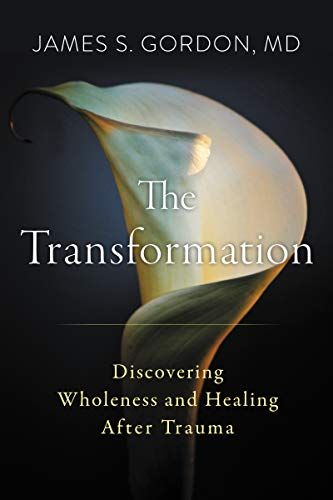
If You’re Looking for a DIY Trauma Toolkit: The Transformation\, by James Gordon, MD
For most of his career, James Gordon, MD, has been heading straight to disaster zones—whether it’s Haiti; the Congo; Parkland, Florida; or the Balkans—working with groups who have been impacted by population-wide psychological trauma, from war to environmental devastation to school shootings. As the founder and executive director of The Center for Mind-Body Medicine, he leads a team of 130 therapists and faculty across the world, and has developed a massive tool kit of evidence-based exercises and practices to move trauma out of the body, many of which he explicates in The Transformation. The beauty of Gordon’s approach is that it works with large groups—and they are quick to train therapists and leaders in the affected communities—which makes their process portable, scaleable, and easy to implement. In addition to leading readers through activities like chaotic breathwork, and shaking and dancing, Gordon offers trauma-informed nutrition guidance as well as journaling and drawing prompts. This is one of those most actionable—and tested—models for healing trauma around.
If You Want a Contextualized Understanding of Trauma: What Happened to You?, by Bruce Perry, MD, PhD, and Oprah Winfrey
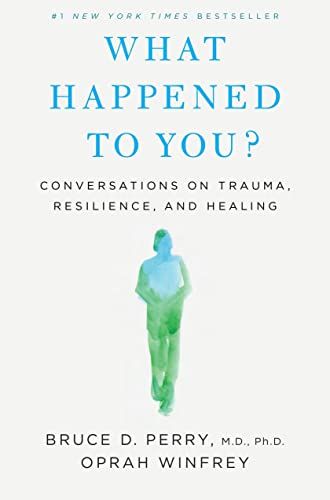
If You Want a Contextualized Understanding of Trauma: What Happened to You?, by Bruce Perry, MD, PhD, and Oprah Winfrey
As the title of Oprah and Dr. Perry’s book suggests, when we’re curious about someone else’s problematic behavior (or, if we’re honest, our own), the best question is not Why would you do that?, it’s What happened to you? Trauma—typically the most insidious version, the wounds from early childhood—emerges throughout our lives in actions and reactions that are far from ideal. And often, we can’t control these actions or reactions, taking them as the truth of who we really are. This beautiful treatise is different from other books on trauma because it’s rendered as conversations between Oprah and Dr. Perry, offering insight to readers on how they, too, can begin to probe their pasts for hints about how they’ve been conditioned by trauma. It also offers a healing path for peeling back those layers of problematic programming in order to reveal a truer version of yourself to the world.
For a Powerful Understanding of Race-Based Trauma: My Grandmother’s Hands, by Resmaa Menakem
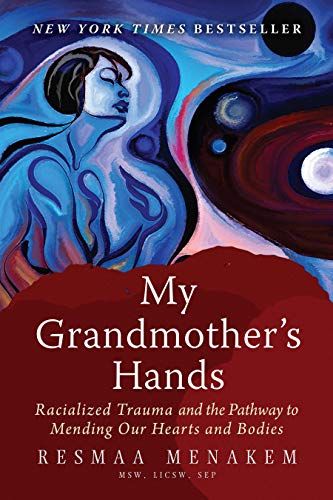
For a Powerful Understanding of Race-Based Trauma: My Grandmother’s Hands, by Resmaa Menakem
Long before the United States was ready to engage in a conversation about racial trauma, therapist Resmaa Menakem made it the center of his practice, working with Black Americans, white Americans, and law enforcement to plumb its depths. Menakem focuses on how the legacy of racism—and its current iterations—shows up in our bodies, and how it then concretizes as both personality and culture. As he writes in My Grandmother’s Hands, “However, the attempt to reenact the event often simply repeats, re-inflicts, and deepens the trauma. When this happens repeatedly over time, the trauma response can look like part of the person’s personality. As years and decades pass, reflexive traumatic responses can lose context. A person may forget that something happened to him or her—and then internalize the trauma responses. These responses are typically viewed by others, and often by the person, as a personality defect. When this same strategy gets internalized and passed down over generations within a particular group, it can start to look like culture. Therapists call this a traumatic retention.” Menakem’s book is an urgent guide for beginning to identify and unwind these patterns, and it also offers essential language, like the difference between clean and dirty pain (the former provides growth, while the latter is typically projected onto our people), along with somatic tools, like steps for identifying what you’re feeling, soothing without repressing, and then discharging your emotions without harming yourself or others.
If You Want to Understand How Trauma Shows Up in the Body: The Body Keeps the Score, by Bessel van der Kolk, MD
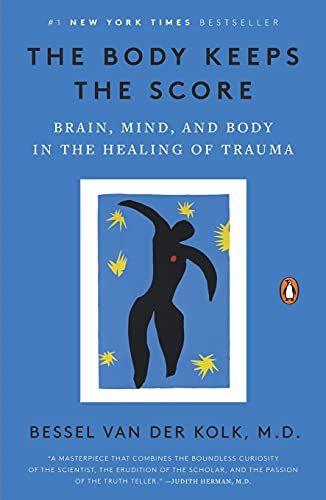
If You Want to Understand How Trauma Shows Up in the Body: The Body Keeps the Score, by Bessel van der Kolk, MD
Bessel van der Kolk’s essential trauma guide, The Body Keeps the Score, has been perched on The New York Times bestseller list for more than 200 weeks—in fact, it’s largely responsible for introducing the world to trauma, along with its impacts on health. And van der Kolk, a Boston-based psychiatrist, would know, as he’s spent his career studying how trauma, early and otherwise, wires itself into our bodies and brains. While we’re newly conscious of the impact of PTSD on war veterans, we’re starting to grok how nearly everyone is affected by traumas large and slow: One in five Americans has been molested, about 25 percent of the population has an addicted parent, and a staggering one in three couples have engaged in physical violence. And these are only the most visible forms of trauma. The Body Keeps the Score offers a comprehensive overview of trauma’s impact on our lives, as well as many of the most promising mechanisms for healing from its effects. While the book was originally published in 2014—and there’s been significant research headway since (including in the realm of psychedelics)—the text still holds.
If You Want to Access the Parts of You You’ve Locked Away: No Bad Parts, by Richard Schwartz, PhD
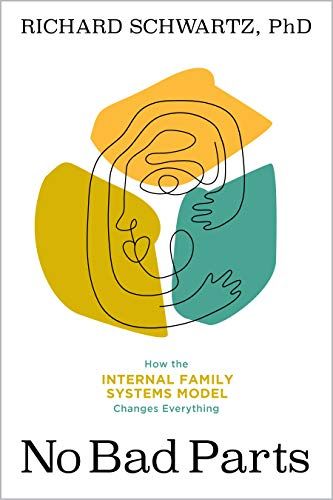
If You Want to Access the Parts of You You’ve Locked Away: No Bad Parts, by Richard Schwartz, PhD
Richard Schwartz, PhD, established an entire school of therapy—Internal Family Systems, or IFS for short—after determining that the “mono-mind paradigm” is a myth, that we’re all made up of many different “parts” that interact with each other in different ways. In other words, these are the voices we hear in our heads, the loudest ones being those who criticize how we’re showing up in the world. In No Bad Parts, Schwartz fully articulates this profound system, explaining, “The mono-mind paradigm has caused us to fear our parts and view them as pathological. In our attempts to control what we consider to be disturbing thoughts and emotions, we just end up fighting, ignoring, disciplining, hiding, or feeling ashamed of those impulses that keep us from doing what we want to do in our lives. And then we shame ourselves for not being able to control them. In other words, we hate what gets in our way.” In Schwartz’s model, as a result of traumatic events, we turn parts of ourselves into “Exiles,” and then guard them with parts functioning as “Firefighters” and “Managers.” As we look to heal, it’s our job to reintegrate our Exiles, and thank the “Firefighters” and “Managers” for their service and then reassign them to more productive roles. As the title of his book suggests, Schwartz doesn’t believe in bad parts, arguing that, “1. Even the most destructive parts have protective intentions. 2. Parts often froze in past traumas when their extreme roles were needed. And 3. When they trust it’s safe to step out of their roles, they are highly valuable to the system.” While it sounds heady, IFS is both fascinating and one of the most effective therapy modalities for addressing trauma—there are IFS-certified therapists across the country. Schwartz also made an Audible original, Greater Than the Sum of Our Parts, where he leads many powerful meditation-based exercises for accessing and reintegrating exiled parts, if this is work you want to undertake on your own.
When You Want to Break Free from Inherited Family Trauma: It Didn’t Start with You, by Mark Wolynn
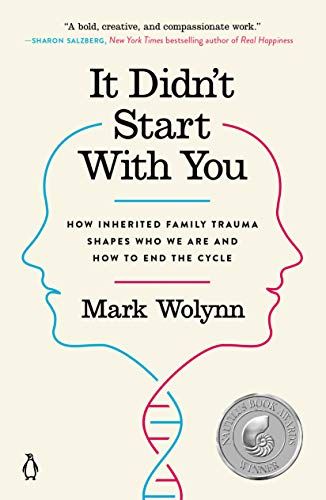
When You Want to Break Free from Inherited Family Trauma: It Didn’t Start with You, by Mark Wolynn
Therapist Mark Wolynn builds on the work of many psychological greats in this fascinating read about inherited family trauma: He cites Sigmund Freud’s “repetition compulsion,” or the “attempt of the unconscious to replay what’s unresolved, so we can ‘get it right,’” as one theory. He also invokes Carl Jung and his theory “that what remains unconscious does not dissolve but, rather, resurfaces in our lives as fate or fortune,” and finally, he leans on Bert Hellinger, who believed “that the mechanism behind these repetitions is unconscious loyalty, and views unconscious loyalty as the cause of much suffering in families. Unable to identify the source of their symptoms as belonging to an earlier generation, people often assume that the source of their problem is their own life experience, and are left helpless to find a solution.” In Wolynn’s experience working with patients who are struggling to break a pattern in life, this “unconscious loyalty,” or over-identification with someone in the family tree, often explains why someone insists on certain behaviors, whether it’s staying single, cheating, or breaking up multiple marriages. In Wolynn’s view, “We appear to share an unconscious obligation to resolve the tragedies of our families’ past,” even when we have no idea that that’s what’s at play. It Didn’t Start with You is a propulsive read as Wolynn explores many case studies from his own practice, articulating how he worked with the patient in question to identify what in their lineage they were re-enacting.
If You Want to Understand the Spiritual Dimension of Collective Pain: Healing Collective Trauma, by Thomas Hübl
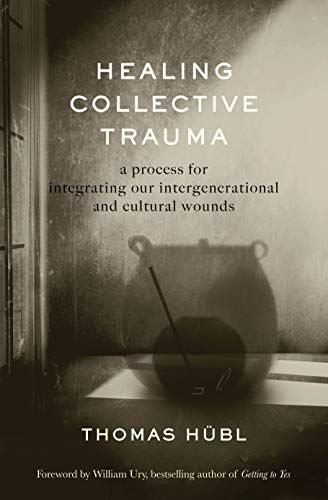
If You Want to Understand the Spiritual Dimension of Collective Pain: Healing Collective Trauma, by Thomas Hübl
Thomas Hübl went to medical school—and then abandoned course to take a spiritual path to healing, wanting to address the scars on our souls. Particularly when those scars are deep and collective and difficult to source—even though he would argue that they’re felt by all of us. And this type of trauma can also be processed and moved by all of us, too, even if we have no relationship with the initial assault. Hübl has spent a lot of time working with groups in his native Austria, though he travels the globe, putting large groups of people into a field of resonance, where trauma buried in the land and collective psyche can emerge and be metabolized. As he writes in Healing Collective Trauma, “I began to witness a profoundly recursive pattern, emerging again and again in groups of all types and sizes. The central locus of the pattern was an often-powerful eruption of energetic material related to the Holocaust and the Second World War. After three or four days facilitating a group, this material surfaced as waves of emotion, physical sensation, and memory, including the phenomenon of mass memory, often experienced by large portions of the group during any given session. As this happened, scores of participants would begin to cry all at once, collectively experiencing images of the war as though they were personal memories.” His book, which is a gorgeous treatise on where the psyche, or spirit, and the physical meet, offers that until we begin the work of moving all this stuck and stagnant energy, we are destined to continue to repeat it. Repressing it, or pretending like it didn’t happen in the past, doesn’t work. “What we think of as destiny is in fact the unintegrated past. And the fragmented, unintegrated past appears always as a false future of repetition, a preprogrammed path along which every individual and every culture sets out until the contents of the past have been brought into the light of consciousness, reconciled and healed.” Hübl believes that this material, as dark as it might be, is essential fuel for our growth, particularly as we push for a more equitable and sustainable future for all.
If You Feel Like You’re Trapped in a Looping Story (That’s Not Yours): Emotional Inheritance, by Galit Atlas, PhD
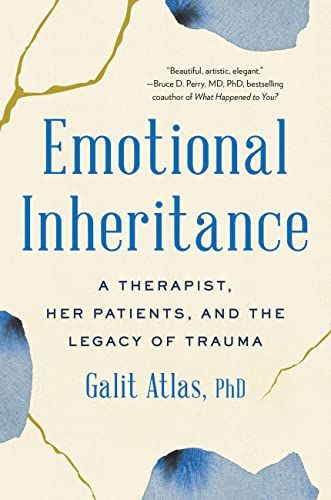
If You Feel Like You’re Trapped in a Looping Story (That’s Not Yours): Emotional Inheritance, by Galit Atlas, PhD
“The secrets we keep from ourselves are meant to protect us by distorting reality and to help us hold unpleasant information far from our consciousness. To do that, we use our defense mechanisms: we idealize those we don’t want to feel ambivalent about, identify with the parent who abused us, split the world into good and bad in order to organize the world as safe and predictable. We project into the other what we don’t want to feel or what makes us too anxious to know about ourselves.” So writes psychotherapist Galit Atlas in Emotional Inheritance. Syrian-Israeli, Atlas has spent her career understanding how that which has been “unsaid and unspeakable” in families—memories of war, genocide, holocaust, abuse—continue to show up in the lives of future generations, insisting that after all this repression, they finally be processed and metabolized. Often, these family members don’t understand and can’t place the pattern that they seem to be stuck in. And that’s because it’s not their own, even though it has come to feel like their destiny. Atlas’s heady and beautiful book offers much insight, as well as tools for beginning to unpack the stories we’re living, stories that aren’t actually ours to live.
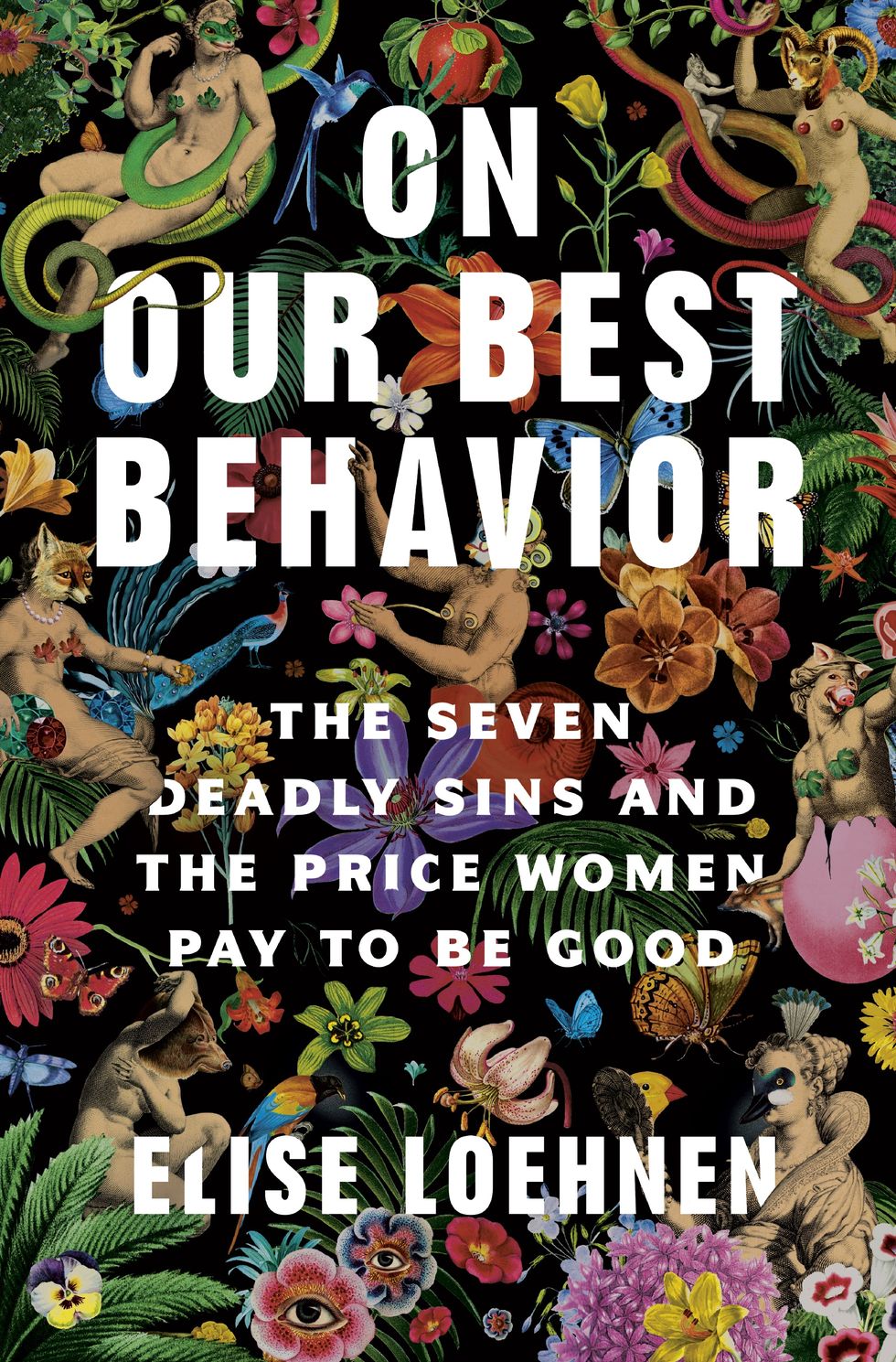
Elise Loehnen is the author of On Our Best Behavior (available to preorder) and the host of the Pulling the Thread podcast.

Elise Loehnen is the author of On Our Best Behavior (available to preorder) and the host of the Pulling the Thread podcast.
Watch Next


Gayle King Celebrates Favorite Grandson Luca
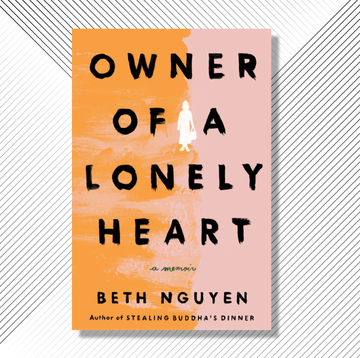
Remembering My White Other Mother

33 Thrillers That’ll Keep You Turning the Page

Am I One of Those Who Ruin Their Own Vacations?


